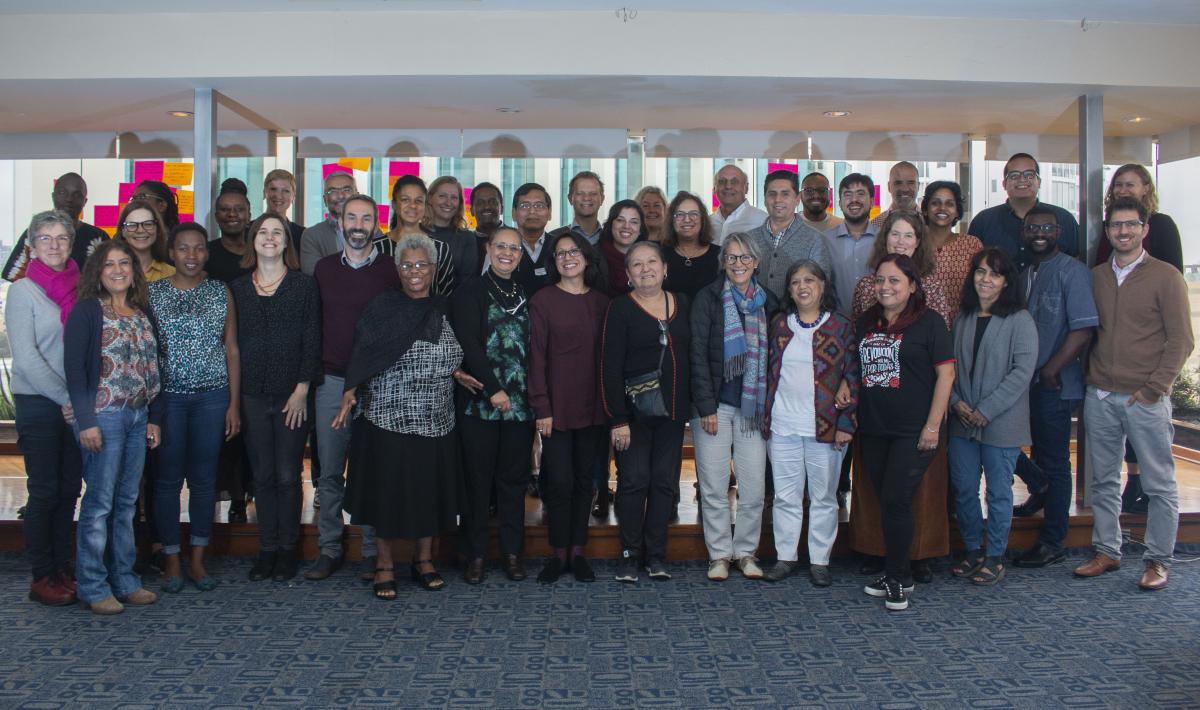

How can human rights activists work more effectively with other social justice movements to address the structural roots of economic inequality? What can be learned from efforts to bring human rights to the struggles for tax, environmental and climate justice? And how can linkages across movements be strengthened so as to build the collective power needed to realize economic and social rights at this critical time?
These were some of the questions explored at the Beyond Boundaries convening, a groundbreaking gathering hosted by the Center for Economic and Social Rights (CESR) in Lima, Peru on 29 – 31 August.
Beyond Boundaries brought together environmental and land rights activists, tax justice campaigners, feminist economists, indigenous peoples’ rights defenders and others from the human rights community who have been working beyond the boundaries of the human rights ecosystem, to explore how cross-movement collaboration and collective power-building strategies can advance more effective advocacy for economic and social rights in the current context.
Participants shared insights from a range of boundary-crossing case studies. These included collaborative efforts to deploy human rights in struggles against tax abuse and climate change at the international levels, as well as nationally focused initiatives such as the campaign for a national minimum wage in South Africa or for a new social contract in the United States. These experiences were analyzed from three related perspectives: how collaboration serves to bridge distinct visions of justice; how it can help pool knowledge and marry different forms of expertise, including experiential expertise; and how it can enrich strategy, broadening understandings of where change happens and expanding pathways for rights-claiming and accountability.
Beyond Boundaries also explored the factors that motivate and enable collaboration across different fields, as well as those that inhibit it. Enabling factors included building a shared analysis of the common structural causes of injustice that different struggles seek to address. Inhibiting factors included the failure to recognize ideological divides and power hierarchies within and across movements, as well as funding silos that reinforce fragmented advocacy.
The convening drew up a series of recommendations for different civil society actors, from NGOs to social movement activists, and from academics to philanthropists. Fundamental principles underlying all the recommendations for effective collaboration were: the need to maintain a focus on long-term systemic change; a commitment to reciprocity and mutual learning; and attentiveness to power dynamics between different actors involved.
The outcomes of the convening have been distilled in the Beyond Boundaries report. CESR also plans to follow up this dialogue with a series of activities planned for next year that will be aimed at fostering more interdisciplinary approaches to economic and social rights advocacy, including through a Beyond Boundaries virtual hub and more regionally-focused reflections on this topic.
From corporate capture to climate change, from the rise of plutocracy to the escalation in inequality, today’s threats to economic and social rights are too vast in scale and too complex in nature to be tackled by the human rights movement alone. CESR remains committed to building bridges across the many movements working for economic and social justice, honoring the spirit in which CESR was founded twenty-five years ago to “advance social justice through human rights.”